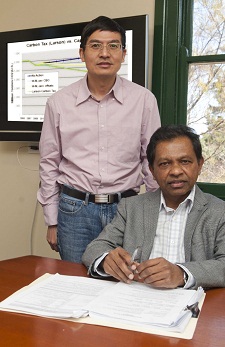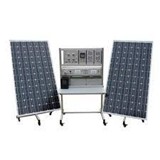The $500,000 research grant to UNE follows the University’s successful completion earlier this year of an ARC-funded project that modelled the impact of the carbon tax – predicting a significant reduction in carbon emissions accompanied by only a small reduction in gross domestic product.
Professor Mahinda Siriwardana, the economist from the UNE Business School who led the earlier project, is now leading its successor, which has just begun. UNE’s industry partner in the Australian Research Council Linkage Grant is the major energy company AGL Energy Limited.
Professor Siriwardana is an authority on the sophisticated "computable general equilibrium" method of predictive modelling that was so effective in the previous project. Using data from AGL, and from surveys of households in rural and regional Australia, he intends to use a similar approach in modelling the relevant behaviour of energy producers and consumers now that the tax has been introduced.
"The most probable outcome is that energy producers will continue to move away from carbon-based energy sources and towards low-emission sources of energy such as wind farms and solar panels," Professor Siriwardana said.
"Nobody’s sure at the moment about the costs and benefits of such a move, as the establishment of wind farms and solar panels is capital-intensive. But if they don’t respond to the carbon tax in that way, the emission levels will not decline, and a higher burden will be placed on consumers to modify their energy use in response to higher prices.
"Using AGL as an example, and monitoring adjustments to its energy production and distribution strategies, we’ll be able to model the effects of changing energy sources on the profitability of such companies as they respond to the carbon tax.
"AGL is already Australia’s largest owner and operator of renewable energy assets, including wind farms and solar power, and it’s very interested in the development of our model, which will produce both short-term and long-term predictions.
"We also want to study the impact of the carbon tax in relation to income distribution...and develop models of compensation for low-income households."
Professor Siriwardana’s five fellow-researchers on the project include Dr Judith McNeill, Dr Ian Reeve and Dr Xianming Meng from UNE’s Institute for Rural Futures and two researchers – Professor Paul Simshauser and Tim Nelson – from AGL.







